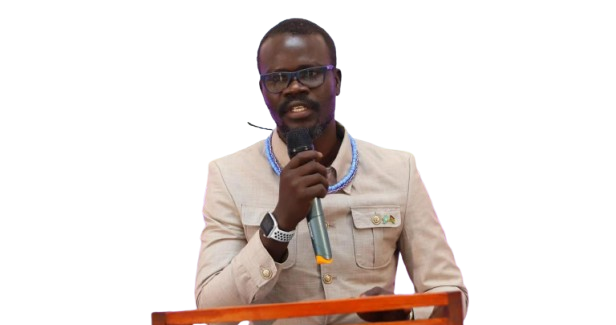Lately, I have been asking myself: Is Africa for sale, or has it already been sold? Is our politics healthy, or does it lack political hygiene?
Please be my guest as I attempt to make sense of these questions.
African leaders have long entered into political marriages with various types of individuals: businessmen, witchdoctors, sacred leaders, dictators, democrats—you name them. From these relationships, they have learned to either lead honestly and leave office when their term ends, or to cling to power indefinitely. Some scholars argue that these leaders act with a kind of strategic prudence.
One troubling tactic, which I describe as political necromancy, involves appointing comrades and friends to top government positions or awarding them high-profile projects: private secretaries, office managers, presidential envoys, advisors, ambassadors, Chargés d’Affaires. These appointments are rarely random. They are designed to buy loyalty and build a safety net—should the political tides turn against them.
Take, for instance, former Ugandan President Field Marshal Idi Amin Dada. He maintained strong ties with the Middle East and fled there when his regime collapsed. Syrian President Bashar al-Assad turned to Russia when his leadership was challenged. Some historians even argue that Adolf Hitler attempted to seek refuge beyond Germany. As the saying goes, “The world is round, and what goes around definitely comes around.”
We now find ourselves with threadbare systems, deeply infiltrated by foreigners in exchange for bribes and coins. Yes, Africa was colonized—like many other parts of the world—but why is it still lagging behind, unable even to feed its people? Why are we allowing leaders the freedom to starve us, divide us, and manipulate our resources for personal gain?
Why are we silent?
Is it fair for leaders to exploit our national resources with their friends in government? Why do we tolerate rigged elections that ensure their continued rule?
No one seems shocked anymore when children of presidents and ministers occupy top positions “on merit”—or if not in office, then owning massive businesses both locally and abroad. Of course, if they are genuinely qualified, they have every right to serve. But appointments based on nepotism, not merit, are unlawful and unethical.
Let me ask you: Why do so many African leaders choose to buy lavish bungalows, cottages, and estates in foreign countries instead of investing in their home soil? Why send their children abroad while local schools are in ruins?
When they fall ill, they run to hospitals in India, Qatar, Abu Dhabi, the United States, the UK, or other European nations. Meanwhile, ordinary citizens die due to a lack of medicine or basic health care. In many public hospitals, patients are told to buy medicine from nearby pharmacies—often owned by the same officials or their associates.
Why can’t these leaders build and equip hospitals with modern facilities in their own countries? Why not hire and properly pay capable doctors?
African citizens are crying out. Day in, day out, they complain that their leaders have abandoned the national cause. Instead of developing the continent, they are scrambling to loot the very resources meant to uplift it.
THE PRACTICE OF POLITICAL WITCHCRAFT
Let me speak plainly.
Some African countries are governed by leaders gluttonous for power. To maintain their grip, they suborn their tribesmen, friends, associates, and cronies within the deep state. They often amend constitutions—removing age or term limits—to stay in office indefinitely.
Is this not political witchcraft? I’m just asking!
I call this cerebral political witchcraft—the embezzlement and abuse of public resources for personal gain, while cunningly turning relatives, tribes, and factions against one another under the banner of political parties. These internal conflicts serve only one purpose: to secure or prolong the leader’s stay in power.
But think about it: Who in their right mind would physically fight for someone else to keep their seat of power, unless bewitched in some way? We need to demystify this for the ordinary citizen.
African citizens have suffered greatly—not because of their own doing, but because of the political class. Yet history has also given us great leaders who governed with wisdom, love, and integrity.
Some notable names come to mind: Nelson Mandela, Amílcar Cabral, Thomas Sankara, Patrice Lumumba, Julius Nyerere, Jerry John Rawlings, Kwame Nkrumah, Haile Selassie, Dr. John Garang, and more recently, Captain Ibrahim Traoré of Burkina Faso.
These men led not as superhumans, but with a thirst for people-centered policies. They sought to lift their citizens out of poverty and into dignity.
CONCLUSION
Africa is not inherently poor. Its poverty is man-made—artificial—created by self-serving leaders and flawed legal systems that fail to protect citizens. Our natural resources are exported under corrupt deals, often for a fraction of their true worth. Meanwhile, the foreign beneficiaries grow wealthier than the landowners themselves.
So, ask yourself: Why is America affluent? Why do European nations uphold strong rule of law? Is it because their citizens respect their constitutions? Is Africa the only continent with mineral wealth?
Of course not. The Middle East, the Americas, Asia, and Europe all have resources. But they have also built systems to protect and develop them.
The difference lies in governance and resource management.
In many countries outside Africa, corruption is punishable by imprisonment—without bail. Elections are transparent. Infrastructural development is non-negotiable. Laws are enforced strictly. Hard work is rewarded. Legislatures create real jobs. And most importantly, no one is above the law.
This is how a nation should function.
Despotism is a crime. Political necromancy must be confronted before it becomes terminal. Are these principles really too difficult for African leaders to adopt?
Let me leave that as food for thought.
The writer, Peter Okello, is a PhD student at Hiroshima University, Japan, pursuing International Peace and Co-existence. He can be reached via email at pokello50@gmail.com.
The views expressed in ‘opinion’ articles published by Radio Tamazuj are solely those of the writer. The veracity of any claims made is the responsibility of the author, not Radio Tamazuj.




